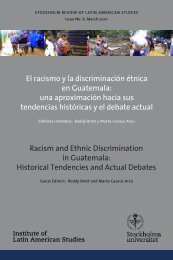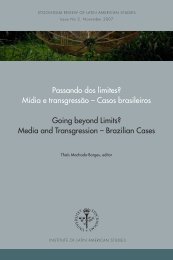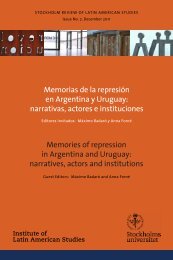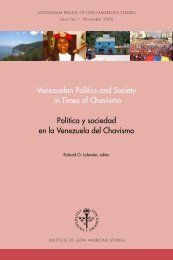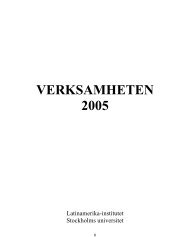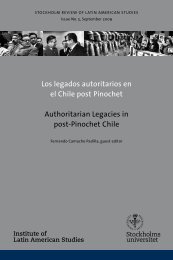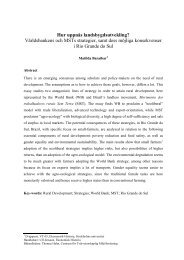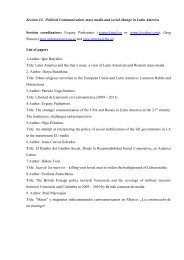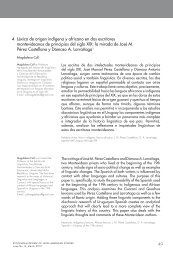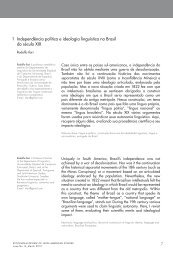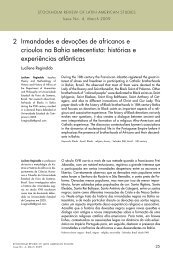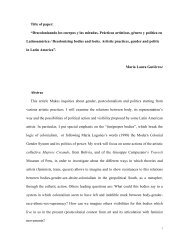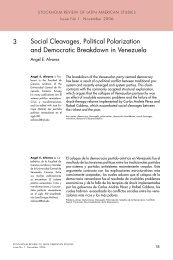Papers - Conference 2009 - Institute of Latin American Studies
Papers - Conference 2009 - Institute of Latin American Studies
Papers - Conference 2009 - Institute of Latin American Studies
Create successful ePaper yourself
Turn your PDF publications into a flip-book with our unique Google optimized e-Paper software.
“some Brazilians […] do and answer such question. [Therefore] becomes possible to park inforbidden places, jump queues in government departments, receive some kind <strong>of</strong> law benefit orbeing a general rule exception” (Almeida: 16, 2007).Nevertheless the efficiency <strong>of</strong> the “do you know with whom you are talking to?” scam can bepartly explain by the fact that this high given position to the elites in Brazil is supported by themasses to a larger extent than for the ones that can take advantage <strong>of</strong> it- although the elites havetheir own ways to keep its privileges. According to Alberto Almeida in what he called PesquisaNacional Brasileira 4 , about 70% <strong>of</strong> the population that have four years, or less, <strong>of</strong> studies refusesto threat his-her boss as “você” (you) – instead <strong>of</strong> “senhor(a) (sir-madam)- even when asked bytheir employers, or to use the same lift <strong>of</strong> their hirers though when it is “allowed” by theresidential building tenants association 5 .b. THE ‘SEEM TO HAVE’ SOCIETYTherefore, through its effective hierarchical social scheme, one would argue that social statusand wealth are extremely significant in Brazil; thus the postmodern idea that we live on aConsumer Society (Baudrillard, 1998) would fit well over Brazilian frames. However a goodshare <strong>of</strong> the Globalization Social Club discussion comes from the tension between views overwestern society from two <strong>of</strong> most famous postmodernists, Jean Baudrillard and Guy Debord(Debord, 1994): a society where what matters is not solely be, nor just have, but where,sometimes, it is enough to seem to have.c. A ‘GLOBAL ELITE’ EXISTS?Let‟s make a necessary break on Brazilian society discussion for few lines and aim to broaderpicture: the existence, or not, <strong>of</strong> a global elite. This discussion can be seeing in different ways,some would say that such phenomenon does not exist whatsoever, while others would argue thata global elite exists within a „new‟ economic-cultural set known as „postmodernity‟ (Harvey4 Pesquisa Nacional Brasileira – or Brazilian National Survey – is a quantitative research that aimed to unveil howBrazilian society works in its ethics, prejudices and social relations. From July 18 th to October 5 th <strong>of</strong> 2002, thesurvey was answered by 2.363 people in different Brazilian areas. The survey results are shown in AlbertoAlmeida’s book “A Cabeca do Brasileiro” (The Brazilians Head).5 Most Brazilian residential buildings have two different types <strong>of</strong> lift. One is called “Social” and is intended to beused by the tenants and their guests. Other is called “service lift” and transports maids, janitors and caretakers.7



